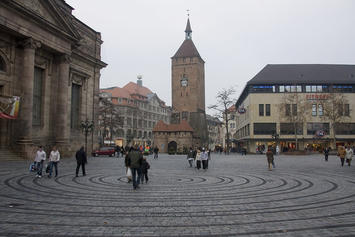
In headier days, Europe’s leaders dreamed of a multicultural continent, its aging cities saved by millions of new migrants eager to join a stable, prosperous urbanity. This was the promise behind former U.K. prime minister Tony Blair’s Cool Britannia, the multicultural fervor of Herman Lebovics’s Bringing the Empire Back Home: France in the Global Age, and the early enthusiasm that greeted Germany’s refugee influx in 2015—estimated now at 1.6 million.
That dream has faded, with Europeans now opposing new migration by wide margins. Once-peaceful German and Swedish cities have seen a spike in crime, a resurgence of anti-Semitism, and growing political unrest—all associated with the migrant influx. In 2016, Pew Research found that 59 percent of Europeans thought that immigrants imposed a burden on their countries. In addition, less than a third believe immigration has improved their countries, with 63 percent of Greeks and 53 percent of Italians, respectively, stating that immigrants have made things worse in their economically challenged countries. As the British political thinker Kenan Malik acknowledged in a 2015 Foreign Affairs essay, “multiculturalism” has devolved from “an answer to Europe’s social problems” to a fraught reality of “fragmented societies, alienated minorities, and resentful citizenries.”
Read the entire piece in City Journal.
Joel Kotkin is the Presidential Fellow in Urban Futures at Chapman University, director of the Chapman Center for Demographics and Policy and executive director of the Center for Opportunity Urbanism in Houston, Texas. He is author of eight books and co-editor of the recently released Infinite Suburbia. He also serves as executive director of the widely read website www.newgeography.com and is a regular contributor to Real Clear Politics, the Daily Beast, City Journal and Southern California News Group.
Photo credit: Michael Dawes, via Flickr, using CC License.












